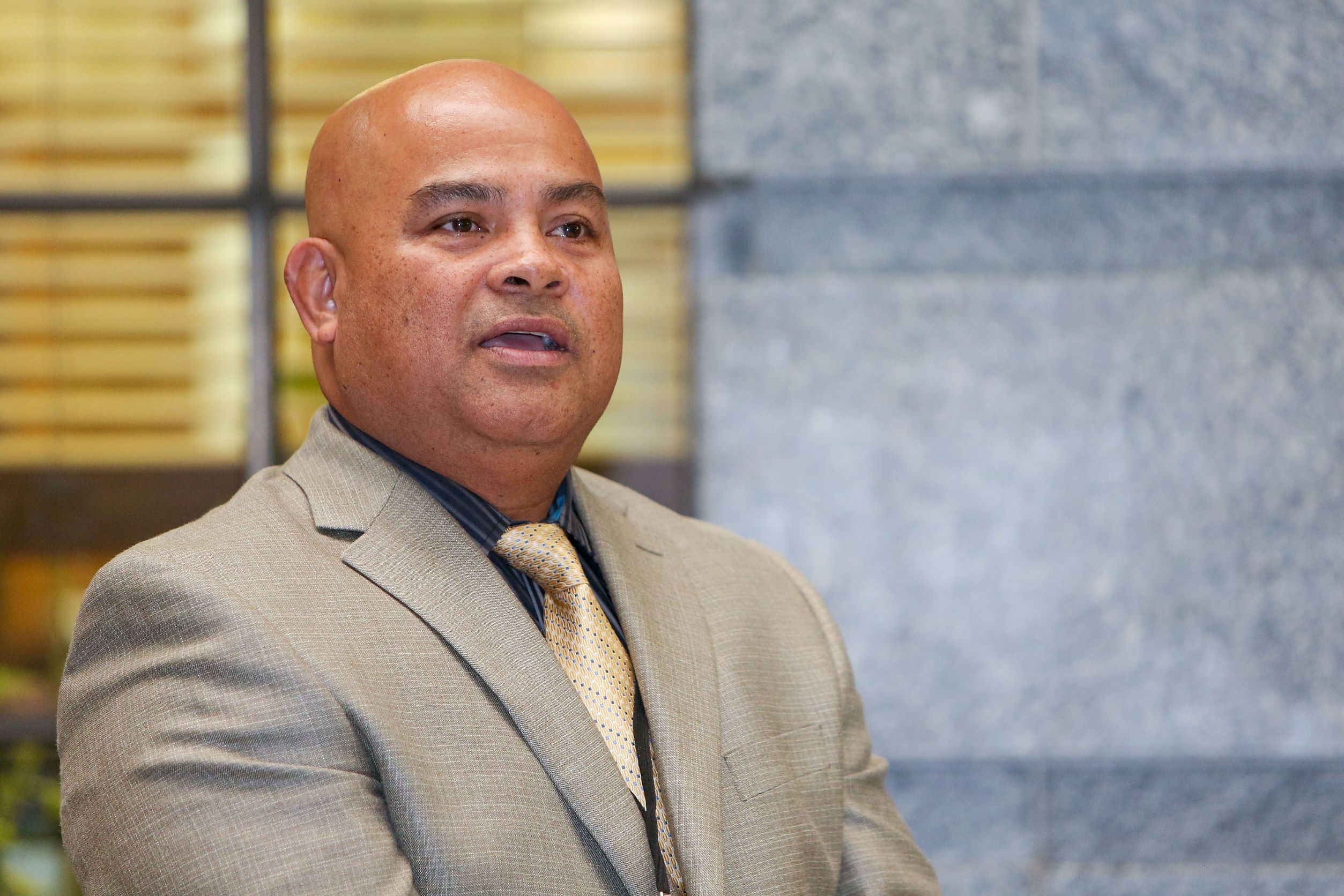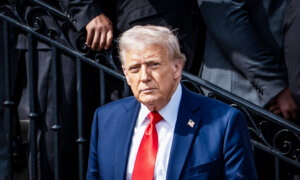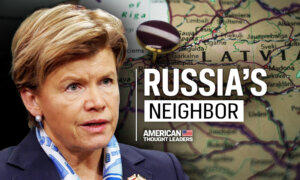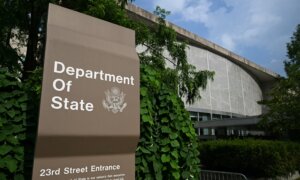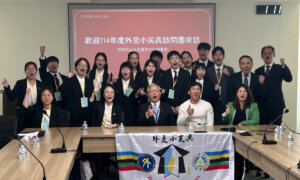Chinese communist agents engaged in bribery and espionage in Micronesia as part of an effort to suppress negative views of the regime’s attempted expansion in the region, according to the former president of the Pacific island nation.
In response, then-President David Panuelo sent a series of now-leaked letters to fellow members of his government, warning them about the Chinese Communist Party’s (CCP) “political warfare” in the region.
“I want to say it very clear and upfront that our foreign policy is that we’re friends to all and enemies to none,” Mr. Panuelo said during an interview with EpochTV’s “American Thought Leaders.” “[But] I felt I needed to take a strong stance to make sure that the sovereignty of our nation was protected.”
One of the CCP’s overarching goals was to ensure that Micronesia would overtly support China during a war for Taiwan or remain neutral in the conflict.
He said that while he loves the Chinese people, their traditions, and their culture, the CCP’s malign influence threatened the very sovereignty of Micronesia and the stability of the Indo-Pacific as a whole.
As such, it required a decisive response from him, according to Mr. Panuelo.
“Over the course of time, I learned that I must take some bold actions to make sure that the sovereignty of our nation is protected and also for the Pacific region as a whole, because security is very important,” he said.
CCP Infiltrating Pacific Islands
Mr. Panuelo said the CCP’s efforts were part of a larger push to expand throughout the region, effectively using Pacific island nations as pawns in its scheme to undermine the United States and the international order.
At one point, he recalled, he sent a letter to Solomon Islands Prime Minister Manasseh Sogavare to express concerns about a sweeping agreement that the CCP sought to sign with 10 regional nations that would have allowed the expansion of Chinese police and naval forces throughout the region.
“China was looking to have that sort of overreaching agreement,” Mr. Panuelo said. “It may be general in nature, but would give them access into the Pacific economically, politically, and probably strategically.”
He said he urged Mr. Sogavare to share the document and vow not to allow China to militarize the islands or “escalate tensions.”
“I wrote to Prime Minister Sogavare in a very friendly manner, because he’s like a brother to me, and as family, we share what we’re concerned about,” Mr. Panuelo said.
The resulting review of the agreement found that the CCP had indeed inserted language into the deal that would have granted the regime expansive and unprecedented economic and military rights in the region, allowing it to prospect the Pacific Islands’ exclusive economic zones and even monitor who entered and left their nations.
“We reviewed that common development agreement and learned that, by signing, we would have given away and compromised our sovereignty,” Mr. Panuelo said.
“[We discovered that it] would allow Chinese to come in and also look at the minerals of our exclusive economic zone; it will give them access into knowing who’s entering our country, who was getting out of our country through electronic means through customs and immigration, among other things.”
The deal was ultimately shelved after Mr. Panuelo wrote to fellow Pacific leaders, urging them to work in “the collective interests of the Pacific.”
The act sparked retaliation from the CCP, however.
After the leak of one of the letters, a regional governor in Micronesia informed Mr. Panuelo that he had been approached by a CCP agent, who attempted to bribe him into publicly denouncing the letter.
“The governor confided in me, and he said, ‘Mr. President, of course, I told them no, because that would be treason, you know,’” Mr. Panuelo said.
“I’m sure [the CCP] went to the other states to do similar things.”
US a Vital Partner in Indo-Pacific
Micronesia is one of three nations in the Indo-Pacific that maintain Compacts of Free Association with the United States. These agreements give the nations access to U.S. economic programs in exchange for granting the United States security privileges in the region.
Mr. Panuelo said Pacific Island leaders shouldn’t be dissuaded from championing the values shared by the Pacific islands and the United States and shouldn’t give in to fear of retaliation by larger nations like communist China.
“During my time as president, I always said that the compact nations must be the nations that very strongly champion democracy, the rule of law, because these things work well,” he said.
“Working together with allies to preserve the rules-based international order, the shared values that we have, is something we need to be strong about.”
To that end, Mr. Panuelo said he never felt that Micronesia was a pawn caught between two powers because he understood what was needed for the island nation to thrive objectively.
“I’ve been asked the question, you know, a few times by the media, whether as a small island country, I feel like I’m sandwiched between two superpowers. And my pointed [answer] was ‘No,’ because I definitely know the best interest of our nation,” he said.
“I think if you know that, it makes it easier because we know our partner [the United States] ... and who to work with to advance the overall security of the Pacific and the entire world together.”
Similarly, Mr. Panuelo expressed gratitude for the good that has come of Micronesia’s relationship with China, although he noted that the regime’s propaganda often attempted to mischaracterize the relationship between the two nations.
“Our relationship with China is always and will always be only on economic and technical terms and cannot be strategic,” he said. “But China always takes the opportunity to unilaterally come out with press releases that call our relationship a strategic partnership, even though we’ve said, ‘No, it’s not a strategic relationship.’
“They’ve always done that, and they’re good with the propaganda of carrying out that message.”
Jan Jekielek contributed to this report.
